Having “upgraded” from my Nikon F75 to a Nikon F80, this little project has definitely come to an end. In fact, with the F75 being deposited on a particular shelf at work that usually ends in cameras being sold, it’s fair to say that it’s quite likely I won’t shoot with it again. That all said, it’s also fair to say that overall it’s been a positive experience, even if it has made me feel a little daft from time to time.
Probably the biggest lesson I’ve taken from this experience is that I’m not as wise as I think I am when it comes to camera choices. Or at very least that I’ve spent something like the last 12 years slowly creating ideologies that have somewhat overtaken simple preferences…
SLR cameras are not the enemy.
Actually, I think it would be somewhat disingenuous to claim that I wasn’t expecting to discover some joy in shooting an SLR camera. The positive experiences I had with my Nikon F90 and an 85mm lens that started this little project all but predicted that I’d find some significant happiness with a smaller lighter equivalent.
One particularly interesting discovery has been some level of confirmation that I do indeed frame differently with SLR cameras. I’ve mentioned this on the blog before here, but it was interesting to read others comment about it here. Until having this confirmed, I’d half assumed this was something in my head, and at the same time I was also of the contradictory belief that I framed better with a rangefinder. Ironically, as it turns out, a difference in framing is noticeable but the difference is neither better or worse. Just, well, different.
Having others reflect on these sorts of things whilst I’ve been walking this path has been quite invaluable. It’s helped me reflect on how, when, and why I choose to frame in the different ways. Getting over this hump I’ve had in my head about SLRs not being right for me also helped kick my ‘Unremarkable Architecture‘ project off too, which alongside some pretty positive feelings about shooting a subject I really find fascinating with a type of lens I get a kick out of using, and a new-to-me film that turned out to be perfect for the job, has all felt pretty good.
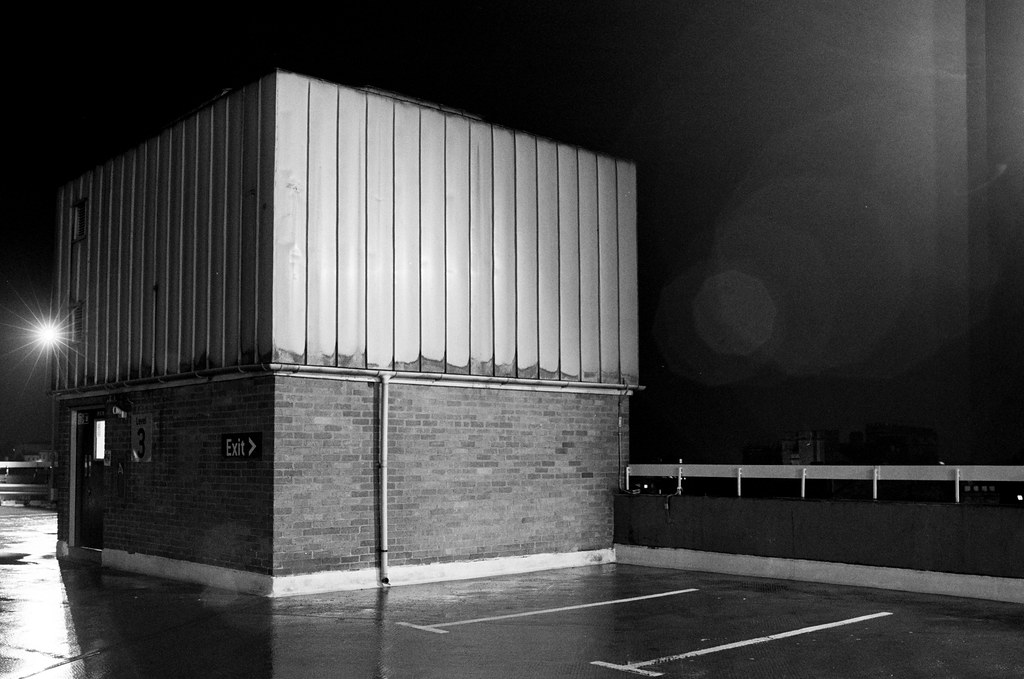
Some expectation confirmation
That being said, it’s not all been plain sailing for the SLR as a concept. As I talked about in what turned out to be one of the most contentious posts I’ve published on this blog (here), I do still find the concept of an SLR to be flawed and, in a few ways, not right for me at all. In all honesty, prior to this project I feel I might have attributed a bit too much weight to the flaws I found in terms of my distaste toward SLRs, but that doesn’t mean they don’t still stand.
There is a fundamental difference between how I use and how I feel about using an SLR compared to a rangefinder camera and I think a lot of this comes down pre-visualisation and how the camera impacts on that process.
As allude to in my previous post in this series, even with an SLR, my preference is for imagining the frame before I put the camera to my eye – something I always do with a rangefinder or compact camera. With the SLR I was setting a zoom lens before I put the camera to my eye in expectation of the frame. As I mentioned my expectation was always slightly off, and on more than one occasion a had to re-zoom the lens from 50 to 60mm.
I reflected at the time that I’d attributed this to the fact that frame lines in rangefinder cameras are smaller than the actual field of view of the lens, but had later reprimanded myself for being smug when I realised that the viewfinder in a Nikon f75 also isn’t a 100% finder. I left it at that as I didn’t really have an explanation for why I had to keep re-zooming, but upon further reflection I have a thought that it might come down to what I talk about in my contentious post about SLRs. The SLR viewfinder – at least in terms of framing – feels very specific, whereas framing with a rangefinder feels almost implied by comparison.
I’m going to come back to this in a post about the concept of the rangefinder soon, but in brief people always talk about the advantage of being able to see what’s just outside the frame – just in case it’s actually wanted within the frame. For me, it’s more than that. Being able to see what’s outside the frame helps me see the context I could see when I was pre-visualising my shot. I now wonder if I was feeling a need to zoom in a bit after seeing what felt like the context when I put the camera to my eye. I’m so used to having the space around the frame that my intended frame mentally-shrunk a bit when I put the camera to my eye…?
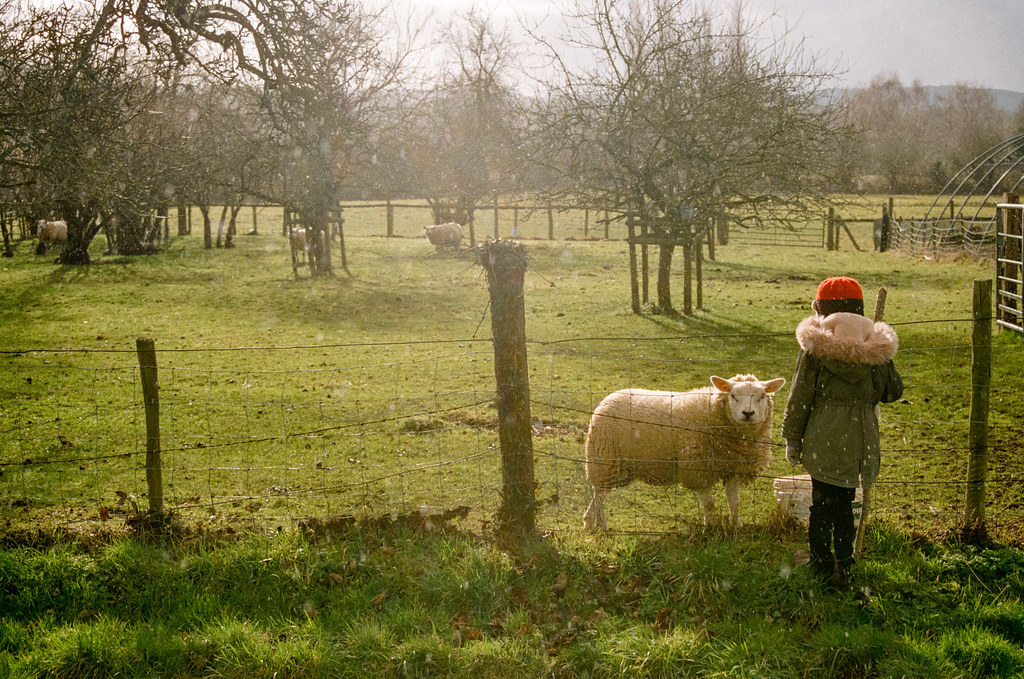
Of course all this might be bollocks, especially as I’m not sure I’ve noticed myself needing to step forward a few paces with the fixed 50mm attached… and now I’ve had this thought process I can’t really test the theory without it unnaturally confirming itself. But the point is, I have noticed something to not feel quite right about the feel of framing with an SLR.
As I’ve said above, I now realise that the difference to the outcome might not be as “better” or “worse” as I’d previously thought, but the experience of framing with a rangefinder or compact camera still feels like a preference. And you know what, I think this is simply down to how long I’ve been using this type of camera. I had my first camera when I was 9 years old; a compact camera. My second camera was a compact too, and both had frame lines. I didn’t get an SLR until my late teens possibly even as much as a decade later. I think I must have imprinted this sort of framing into my psyche. As I mentioned in my Leica mystique post, and indeed as I will no doubt come back to in my forthcoming post about rangefinders, that sort of framing just feels right to me. I can come and probably will come up with a million wishy-washy explanations for it, but at the end of the day, what feels right sometimes just feels right because of muscle memory (or whatever the equivalent is that happens in your brain).
Preference vs. Ideology
I think, ultimately, what this all amounts to is a discovery that a lot of my opinions have previously been hung off ideologies rather than preferences. Looking back, I suspect starting a website dedicated to compact cameras and then eventually rangefinders helped form ideologies out of preferences. These ideologies have helped frame the website, but have overtaken simple preferences in shear weight within my bonce.
This in turn has got in the way of my appreciation of some cameras as they didn’t fit the ideology. What I’ve found going through this process is that whilst there are many ways in which I don’t get on so well with SLR cameras, for the right sorts of subject matter and shooting circumstances they can still provide me with a better experience than most alternatives. This has been proved to me through the use of both a fast 50mm for snaps of the kids, and a zoom lens for days out with the family. And, as mentioned, the Unremarkable Architecture project wouldn’t be possible without me embracing an SLR.
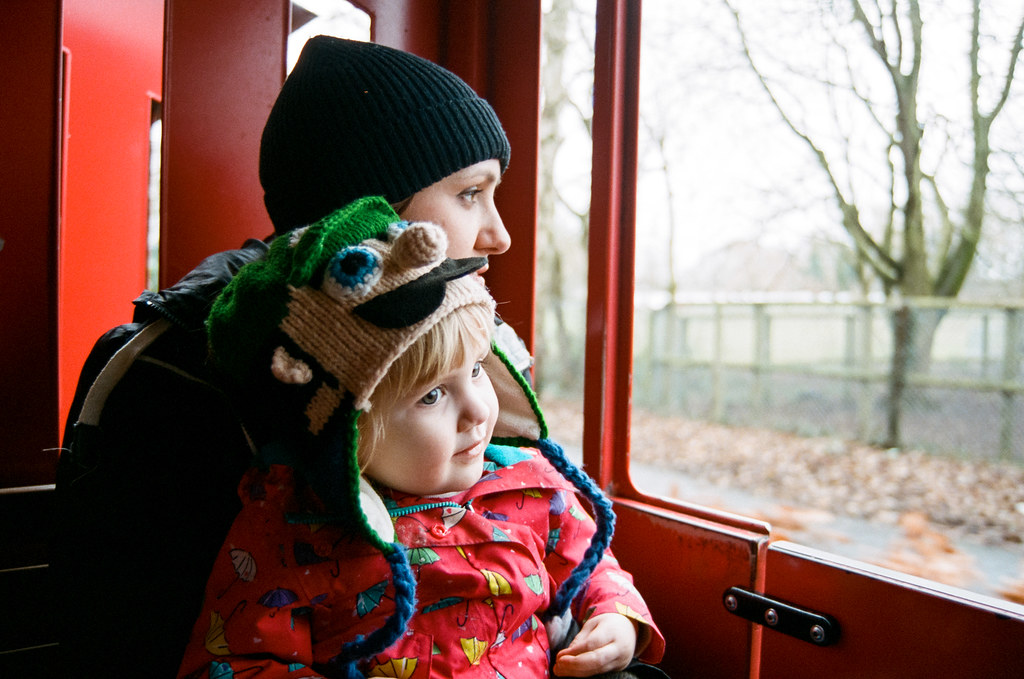
The F80 upgrade
This all said, as I alluded to at the begging of the post, ironically the F75 turned out to be the wrong camera for the project. Or at very least it did manage to confirm some of my ideologies preferences. The evening I took the F75 out to the Christmas Fayre was a bit of a disaster. Not in terms of the results, which in spite of my frustrations with the camera actually came out rather well. What confounded me that evening was the fact that I was shooting with a relatively feature packed consumer camera.
Now don’t get me wrong, I do love a lot of consumer cameras – simple point & shoots with limited features appeal to me on many levels (quite possibly because of the aforementioned decade I spent shooting them). On the other hand, feature packed consumer cameras feel very much like they get in my way. As I say, the irony is, had I just let the Nikon get on with it without any interference from me it probably would have done a fine job, in fact it did. But, given those sorts of shooting environments, I just feel that I need a little more control. And moreover, when I want control I want it to be logical and easy to take it.
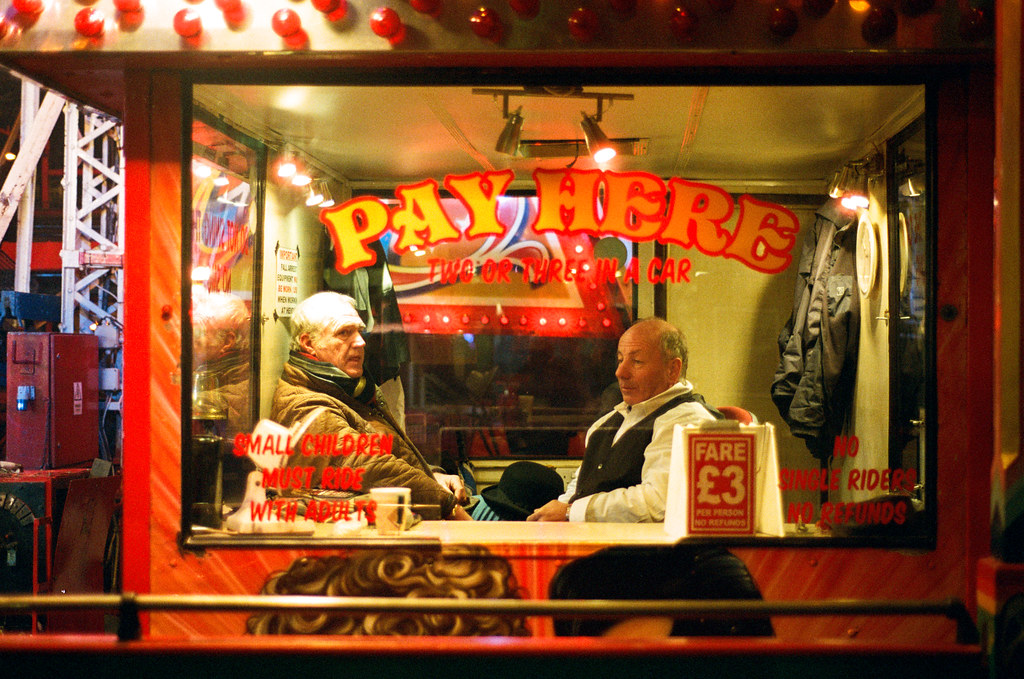
Compared to the F75, the F80 should allow this control in a very simple and easy to understand way. It has none of the auto modes (or dad-cam modes as I disparagingly, and somewhat smugly call them), instead it has a simple dial for setting the shooting mode, and another dial for the metering mode. It also has two wheels for independently changing shutter speeds and aperture under my thumb and forefinger. This combination of features would have seen me good on that night at the Fayre. I perhaps should have taken the advice of all the people on social media who told me from the start that the F80 was a better choice for this project…
Some final thoughts
All in all, I feel somewhat enlightened by this process. As I said at the beginning, I would be fibbing if I said I wasn’t expecting some of the outcomes. But, it has certainly clarified and strengthened some of my preferences, whilst thankfully also given me the opportunity to question some of my ideologies. I’m sure to some people all of this is a massive exercise in overthinking. It probably is, but as someone who writes so much about cameras, their user experience and and how they work for me, I feel it’s definitely been a useful sense-checking process, if nothing else.
Of course, I’m not all of a sudden going to start testing and playing with every SLR I can get my hands on. But, the F80 is definitely going to get a good run (I’ve shot three rolls with it in the last week and a half)… and since the crowdsourced advice was so good in this instance, I’ve also chosen to take some other advice given about another series of cameras I should try (again). As such, my next little camera-project is going to feature an Olympus OM2n I’ve borrowed off a mate… so keep an eye out for that over the next month or so!
Cheers,
Hamish
Share this post:
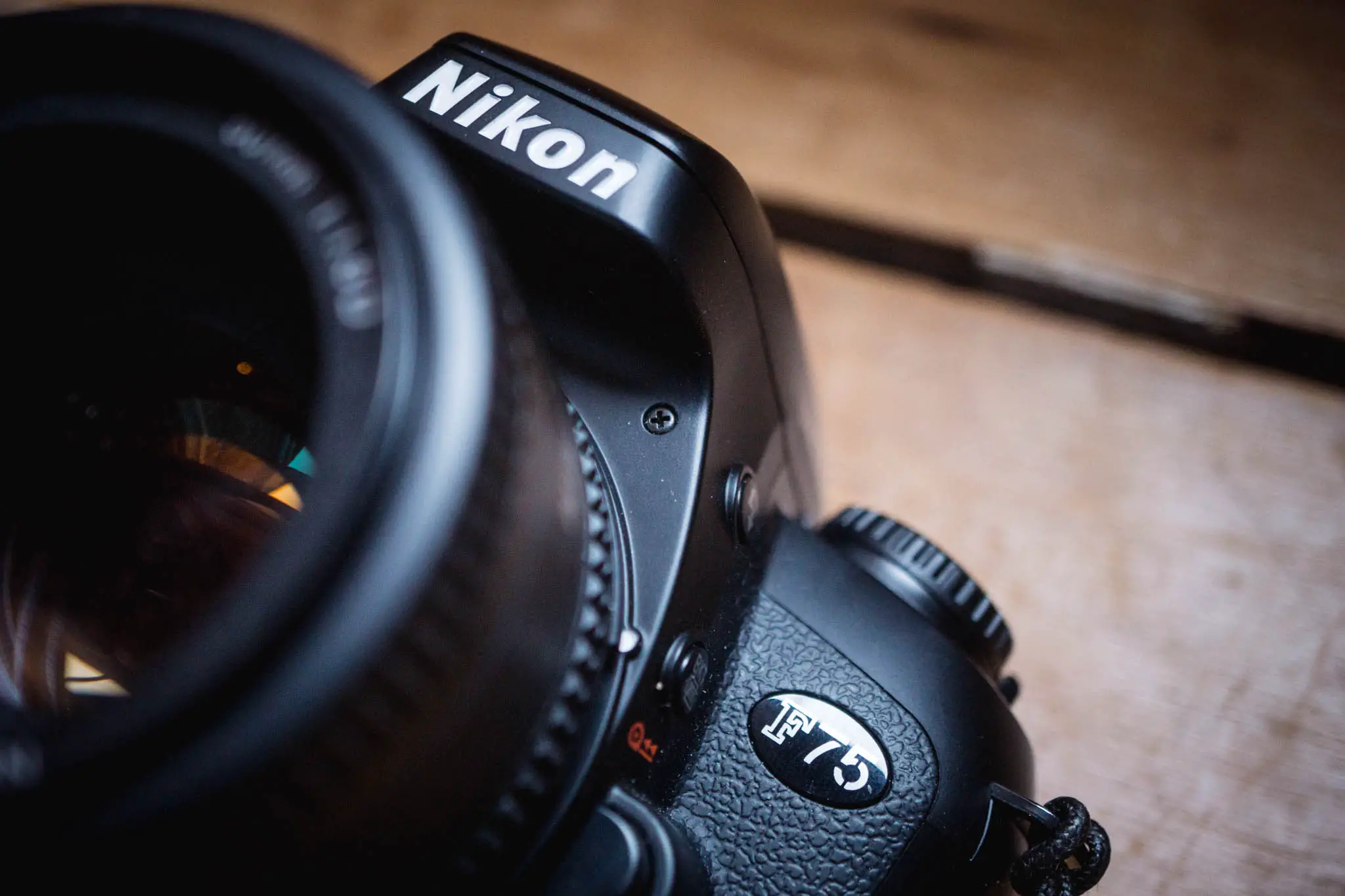

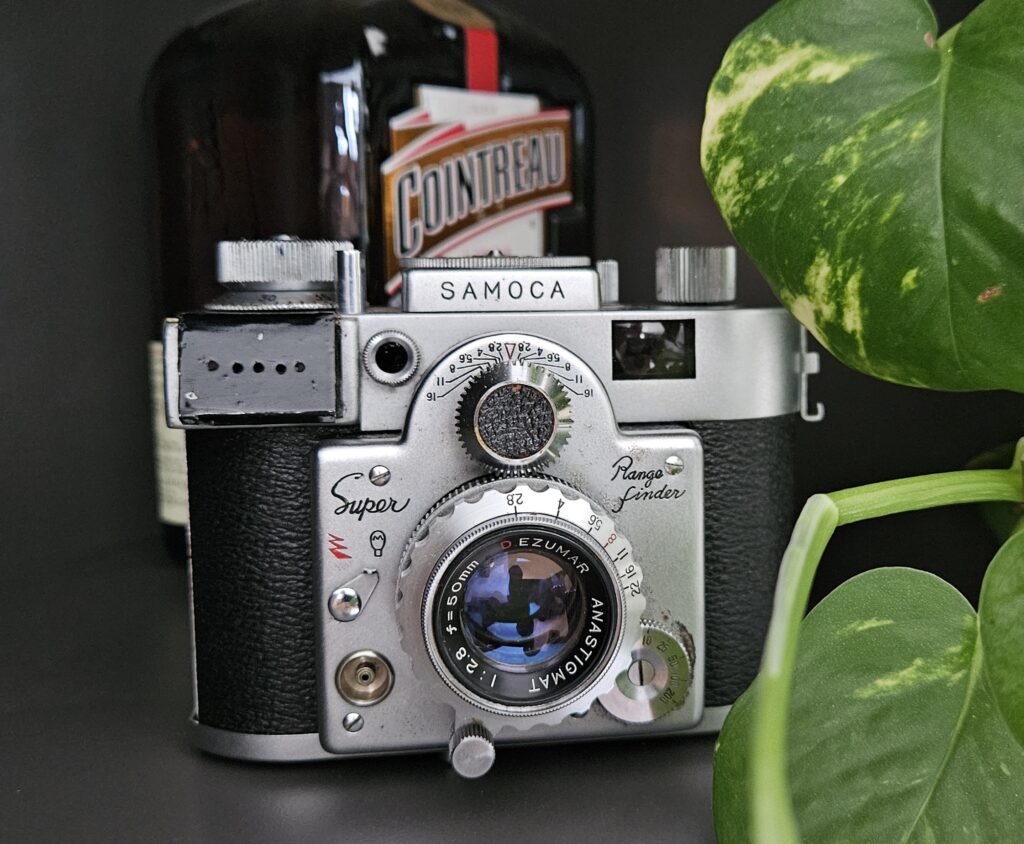

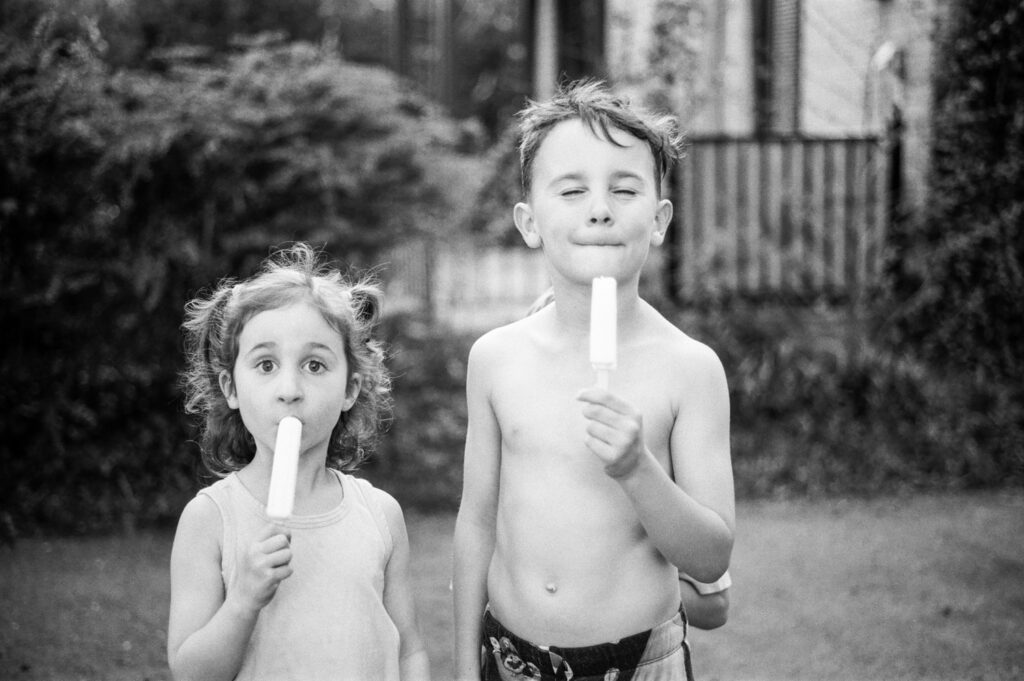




Comments
George Appletree on Nikon F75 Project – Part 6 – preferences & ideologies
Comment posted: 04/03/2018
Maybe we have a preconceived idea, for instance thinking having a Leica is getting closer to humanitarism because Cartier Bressson was, guessed, the father of that current. Or that lomography is very, say, democratic because everybody can make art with a crappy thing.
Choosing a tool is of course a part of the deal and some prefer a cheap thing or have a budget for buying one brand new Leica after the other. Experimenting is a very base of formation, and one cannot have a proper idea of what's possible to do and what to feel confident with if not having experiment a few choices. If using a compact camera or a digital reflex with a long zoom makes you feel more in one side or the other of the "ideological" spectrum that's rather a personal conlussion, the same it could be wearing blue jeans instead of a tie. But the conclussion is that you feel comfortable with your choice. The reason for that is obviously jiust up to you.
Russ on Nikon F75 Project – Part 6 – preferences & ideologies
Comment posted: 04/03/2018
Russ
Comment posted: 04/03/2018
Comment posted: 04/03/2018
Tom Aspin on Nikon F75 Project – Part 6 – preferences & ideologies
Comment posted: 05/03/2018
My Dad grew up in the 1940s and Leica , Contax and Zeiss rangefinders were the thing to have, and he used and collected these throughout his life. There was the odd reflex, but he always came to his rangefinders.
Different cameras impose themselves on your photographic style in different ways, and I would struggle to say that one camera type was inherently superior to another. They're just different.
Comment posted: 05/03/2018
Rollin Banderob on Nikon F75 Project – Part 6 – preferences & ideologies
Comment posted: 06/03/2018
Comment posted: 06/03/2018
Tom Aspin on Nikon F75 Project – Part 6 – preferences & ideologies
Comment posted: 08/03/2018
My dad grew up in the 1940s and 50s and rangefinders were very much the thing - Contax and Leica were the camera to have, and he has used / collected these throughout his life.
He gave me a IIIf some years ago, and I really struggled with it. I am a right handed but left eyed shooter, so I had major difficulties with framing and focussing, and was not really able to benefit from the extra spatial awareness that a lot of users talk about.
Leicas are beautiful objects, and feel wonderful in the hand, but they just don't work for me.
Ryan Hasvold on Nikon F75 Project – Part 6 – preferences & ideologies
Comment posted: 21/03/2018
Comment posted: 21/03/2018
Marc on Nikon F75 Project – Part 6 – preferences & ideologies
Comment posted: 03/06/2021
It's all a compromise, every gear is. If i want to shoot for joy, i just use a old Minolta, Contax or Yashica SLR. If i just want to get the Job done, i choose the F75.